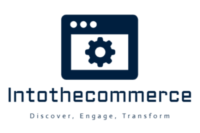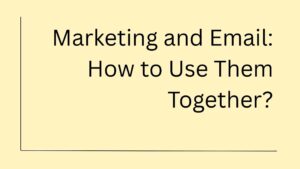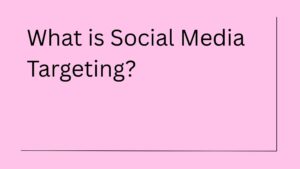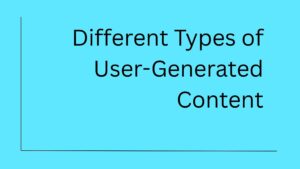Marketing to doctors, nurses, specialists, and other healthcare professionals (HCPs) isn’t quite the same as running a flashy consumer campaign. In fact, it’s a whole different ball game. You’re not just trying to sell a product, you’re trying to gain the trust of highly educated, time-starved professionals who have patient outcomes riding on their decisions. So yeah… the stakes are pretty high.
HCP marketing is the unique, often misunderstood world of pharmaceutical and healthcare marketing that focuses specifically on engaging healthcare professionals. Whether you’re a pharma company just getting your feet wet or a marketing team wondering why your standard digital strategy isn’t landing, this guide is your starting point.
What is HCP Marketing?
HCP marketing (short for Healthcare Professional marketing) is the set of strategies and tactics pharmaceutical, biotech, and med-tech companies use to communicate with and influence healthcare professionals, those who prescribe, administer, or recommend medical treatments and therapies.
It’s not just about sending brochures or inviting doctors to lunch anymore. Modern HCP marketing is a multi-channel, data-driven, and often highly regulated process. It involves educational content, product information, research findings, continuing medical education (CME), peer engagement, and much more, all tailored to a professional audience that values evidence over fluff.
Why Is HCP Marketing Important?
Let’s not overcomplicate this: HCPs are the gatekeepers.
They’re the ones writing prescriptions, advising treatment plans, and guiding patients through critical health decisions. If a new drug, device, or therapy is going to succeed in the market, it often has to pass through the judgment of these professionals first.
But here’s the thing: HCPs are busy. Distrustful of marketing. Overwhelmed with information. And incredibly discerning. So earning their attention (and trust) takes more than a catchy headline.
That’s why effective HCP marketing is not just a “nice to have.” It’s essential to the commercial success of most pharmaceutical products.
What Makes HCP Marketing Different from Consumer Marketing?
In a word? Everything.
Unlike consumer marketing, which often plays on emotions, lifestyle benefits, or quick impulse decisions, Healthcare professional marketing is rational, scientific, and deeply rooted in credibility. Here’s how it stands apart:
- Scientific Communication: You’re not talking about “feeling better fast.” You’re discussing pharmacodynamics, clinical trial outcomes, mechanisms of action, and adverse event profiles.
- Highly Regulated: In most regions, pharma companies can’t just say whatever they want to sell a drug. Regulatory bodies like the FDA, EMA, and others place strict rules on how you communicate with HCPs.
- Longer Sales Cycles: HCPs don’t just see a product once and start prescribing it. Adoption takes time, sometimes months, sometimes years. Relationships and credibility matter more than quick wins.
- Complex Decision-Making: Prescribing isn’t always an individual decision. Hospitals, insurers, and even national formularies can influence what an HCP can recommend.
So yeah, it’s not like selling sneakers.
Key Channels for HCP Marketing
While old-school tactics like rep visits still exist, the modern HCP marketing toolkit is far broader and smarter. Here are the primary channels pharma marketers rely on:
1. Field Sales Representatives (The Classic)
Still a mainstay. Sales reps provide face-to-face interactions, samples, and product updates. When done right, this channel builds real, lasting relationships. But access is getting harder post-pandemic, so it’s no longer enough on its own.
2. Email Marketing
Sounds basic, but email marketing, when personalized and compliant, is still highly effective. Short, informative updates that respect the HCP’s time can keep your product top of mind without being annoying.
3. Webinars & Virtual Events
Live or recorded events with medical thought leaders offer valuable scientific education. They also give HCPs a reason to engage beyond just product talk.
4. Medical Conferences & Congresses
Whether you’re hosting a booth or sponsoring a symposium, this is where top-tier HCPs gather. It’s expensive, yes, but great for visibility, networking, and credibility building.
5. Programmatic Advertising
Through verified platforms, you can now deliver digital ads specifically to HCPs, based on specialty, prescribing behavior, or even conference attendance. This is precision targeting without breaching compliance.
6. Continuing Medical Education (CME)
Supporting HCPs’ educational goals with accredited content helps build trust and brand affinity even if you’re not promoting a specific product in that moment.
Types of Content That Work in HCP Marketing
You can’t just recycle your consumer content and expect it to work here. HCPs want data, depth, and relevance. Here are a few content formats that resonate:
- Clinical Trial Summaries
- Mechanism of Action (MoA) Videos
- Patient Case Studies
- Infographics on Treatment Guidelines
- Prescribing Information Sheets
- Whitepapers or Scientific Articles
- Peer-to-Peer Testimonials
And yes, every word, visual, or video should be medically accurate, balanced, and legally approved before it sees the light of day.
Challenges in Healthcare Professional marketing (HCP) Marketing
Let’s be honest, it’s not all smooth sailing. HCP (Healthcare Professional) marketing is full of unique hurdles:
1. Access Barriers
Due to digital fatigue and stricter regulations, getting direct access to HCPs is tougher than ever. Many hospitals and clinics restrict in-person rep visits altogether.
2. Compliance Complexity
You’re walking a tightrope. Say too little, and your message flops. Say too much (or say it the wrong way), and you risk regulatory violations.
3. Information Overload
HCPs are drowning in emails, journals, and alerts. Cutting through the noise requires insightful targeting and relevance, not just frequency.
4. Fragmented Channels
Some HCPs love webinars. Others don’t. Some still prefer printed materials. Some are on Medscape. Some are not. Building a truly omnichannel strategy is easier said than done.
Best Practices for Successful HCP Engagement
So, what works? Here are a few guiding principles to keep your strategy on the rails:
Understand Your Audience Deeply
Go beyond specialty. Know their clinical challenges, practice setting, patient population, and even time constraints. A general practitioner in a rural clinic isn’t the same as an oncologist at a research hospital.
Lead with Value, Not Promotion
Education first. Product second. If your content helps an HCP make a better decision for a patient, they’ll remember you even if they don’t prescribe right away.
Use Data, But Make it Digestible
Stats are important, but don’t dump a 37-page clinical trial PDF in someone’s inbox. Summarize, visualize, and contextualize.
Be Multichannel, But Cohesive
Your email, sales rep, webinar, and ad strategy shouldn’t be working in silos. When it’s all aligned, it feels seamless to the HCP. That’s when it clicks.
Measure and Iterate
Track opens, clicks, visits, time spent, conversions, whatever KPIs make sense for your campaign. Then adjust. What works in cardiology may flop in dermatology.
Is HCP Marketing Ethical?
It’s a fair question.
The pharmaceutical industry has faced plenty of scrutiny over the years. But done ethically with accurate data, transparency, and regulatory oversight, HCP marketing serves a legitimate and often valuable role. It helps doctors stay informed about new treatments, safety updates, and evolving standards of care.
In many ways, HCP marketing is about partnership, not persuasion. When you treat it that way, it shows, and professionals notice.
Conclusion
If you’re expecting quick wins or viral breakthroughs in HCP marketing, you might be in the wrong room. This isn’t about trends, it’s about trust. And trust takes time.
But if you respect the intelligence and pressure HCPs deal with, deliver real value in your communications, and play the long game… you’ll see the results. Not overnight, but steadily and sustainably.
At the end of the day, the goal isn’t just to sell more. It’s to equip the people who care for others with better tools, better knowledge, and better choices.
And that’s worth getting right.
FAQs about HCP Marketing
Specialists often require highly technical, data-heavy content focused on a narrow field of expertise, while general practitioners benefit more from broad clinical overviews and real-world applicability. Tailoring messaging based on clinical depth, patient load, and diagnostic responsibilities is crucial when segmenting your HCP audience.
AI helps pharmaceutical marketers analyze prescribing behaviors, predict engagement patterns, and personalize content delivery across channels. It can also assist in automating follow-ups, optimizing campaign timing, and even flagging compliance risks before content is deployed.
Yes, but with caution. Platforms like LinkedIn, Doximity, or Sermo are better suited than consumer networks like Instagram or TikTok. They allow for professional peer discussion, targeted ads, and even educational promotions, assuming all regulatory guidelines are strictly followed.
Effective HCP engagement can boost participation in clinical trials by raising awareness among investigators and physicians. It also opens doors to research partnerships, key opinion leader (KOL) relationships, and advisory roles that help shape early-stage drug development.
Budgets can vary widely depending on therapeutic area, target market size, and regulatory constraints. However, expect to invest significantly in content development, compliance reviews, channel partnerships, and analytics tools. Higher-cost components like live events or sponsored CME programs can quickly increase campaign spend.

The Chief Author and Editor at Intothecommerce. As a seasoned expert in digital marketing, I direct the site’s strategic content and ensure every piece meets the highest industry standards. My insights drive our coverage on SEO, paid media, and cutting-edge marketing technology.





3 thoughts on “What is HCP Marketing? A Starter Guide for Pharmaceutical Success”
Interesting topic, mate; great to read.
I am truly thankful to the author of this blog who has shared this fantastic & less-discussed topic, I mean, pharma marketing at this place.
Last night, I went to your healthcare marketing blog for a bit and thought it was just for surface-level stuff, but unexpectedly, you covered a deeper topic. Great.